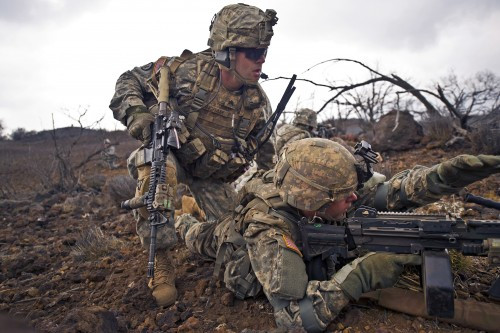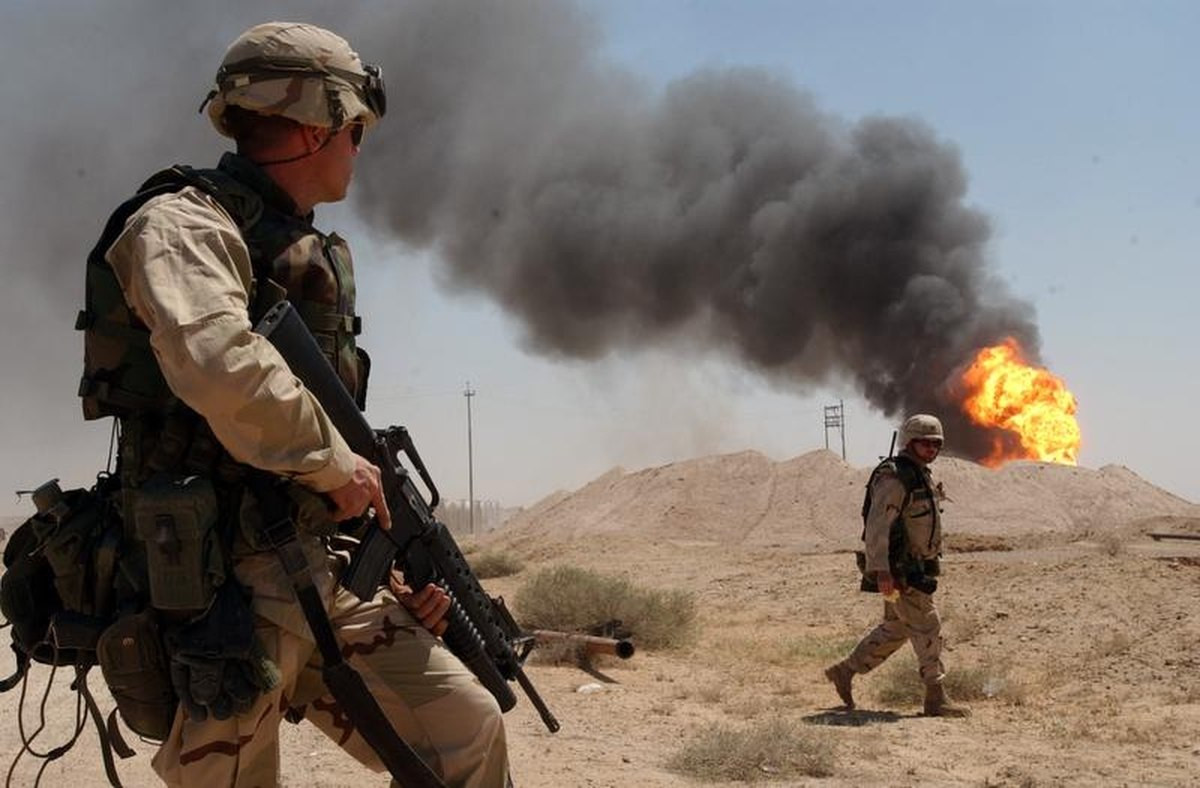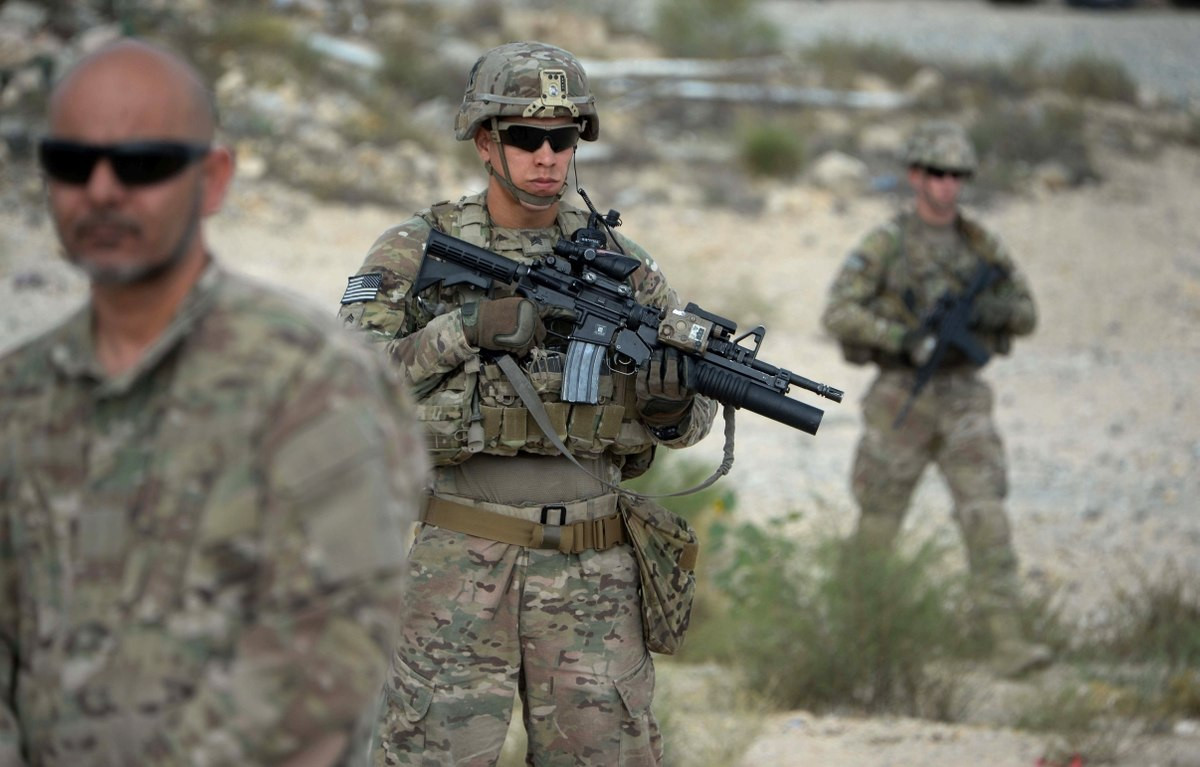5 times America used military force and received disastrous results
America is currently the most powerful country in the world, with a network of allies stretching from the Western Hemisphere to the Persian Gulf, but it is not that America has never tasted military defeat.
 |
| The US military is currently the most powerful force in the world. |
According to National Interest, history has shown that even military powers like the United States have made strategic mistakes and suffered damage to their reputation.
Below are five times the US used military force, all of which led to less than rosy outcomes.
Vietnam (1962-1975)
According to author Daniel R. DePetris, no war has been as destructive as the more than decade-long American war in Vietnam. It all began when the United States began advising South Vietnamese forces in the early 1960s.
As a result, America was bogged down in a war that cost money and the lives of 58,000 American soldiers, causing people to rise up in protest against the government.
During two US presidential terms after entering the war, Washington proved powerless against North Vietnam's guerrilla tactics, forcing lawmakers to come up with a comprehensive troop withdrawal solution.
The war ended in humiliating defeat, and a large-scale evacuation began from the roof of the US Embassy. By 1975, the liberation army entered Saigon, reunifying the country.
Decades later, former US Secretary of Defense Robert McNamara admitted the Johnson administration’s mistake: “We were wrong. We exaggerated the threat to the United States from enemy actions.”
Lebanon (1982-1984)
In 1982, Lebanon ceased to be an independent state. Israeli, Palestinian and Syrian forces competed for power. Fears of another Arab-Israeli war led then-US President Ronald Reagan to take action.
Reagan signed an order to send US troops to Lebanon as a peacekeeping force so that “the Lebanese government can increase its ability to control, administer, and protect its territorial sovereignty.”
The situation in Lebanon shows that the country is not ready for any peaceful solution. Foreign-backed local forces continue to dominate.
Palestinian forces refused to withdraw, nor did Syria, while US Marines became targets of suicide bombers. The culmination of the shooting down and capture of a US pilot led lawmakers in Washington to demand a full withdrawal.
As a result, Reagan ordered the withdrawal of US troops from Lebanon in 1984. The US military lost a total of 265 soldiers in Lebanon and another 159 were wounded.
Iraq (2003-2011)
 |
| US soldiers patrol in Iraq in 2003. |
Though less bloody than America's misguided adventure in Vietnam, the Iraq war is still considered one of America's greatest strategic disasters.
The purpose of the invasion was to overthrow Saddam Hussein's regime and install a pro-American government in Baghdad.
The Bush administration was confident that it could wage a blitzkrieg, accomplishing its goals in a matter of weeks. The reconstruction of Iraq would be funded by the profits Baghdad earned from oil sales.
But no US official saw the rise of Sunni and Shia Muslim rebels after Saddam Hussein was overthrown. That was the basis for extremist Islamic groups such as Al Qaeda and IS to continue to rise, spreading to neighboring countries such as Iraq.
Iraq’s political system has also become more unstable than ever as officials and military officers are involved in corruption. According to statistics from Brown University in the US, the US has spent 822 billion USD on the Iraq war since 2003.
Libya (2011)
Dictator Muammar el-Gaddafi has long been a thorn in the side of the West. Gaddafi's suppression of peaceful protests after 40 years in power is considered the "last straw".
In March 2011, the UN Security Council passed a resolution to protect the Libyan people by all means, including the use of force. After a few weeks, the NATO coalition shifted its goal from protecting civilians to overthrowing the Gaddafi regime.
In October 2011, the Libyan dictator was assassinated along with hundreds of loyalists while trying to hide from rebels.
Libya has since descended into chaos. The legitimate government, recognized by the United Nations, controls only the capital, Tripoli. The rest of the country is controlled by a variety of armed forces.
Libya's oil reserves are the reason for factions to constantly destroy each other. Arab countries such as UAE, Egypt, Qatar also intervene in the situation in Libya for their own purposes.
Today, Libya has become a buffer zone for migrants from Africa to Europe. The US has not gained any security benefits from the war in Libya.
Afghanistan (2001–present)
 |
| The war in Afghanistan has become a burden that no US President wants to admit defeat. |
The September 11, 2001 terrorist attacks in New York created a wave of public anger and indignation in the country. As a result, the Bush administration quickly launched a war against the Taliban in Afghanistan, accusing them of harboring members of the terrorist group Al-Qaeda.
Instead of packing up and going home after the campaign was over, Washington decided to conduct a social experiment in Afghanistan.
It was about building a Western-style government instead of focusing on wiping out the remnants of Al-Qaeda. American soldiers acted as security for a new political mission.
More than 17 years later, Afghanistan remains completely unstable. 14,000 US troops are still permanently stationed in the country. The Afghan government is completely dependent on foreign resources, while the military leadership and officers are extremely weak.
An estimated 30,000 Afghan soldiers have been killed in fighting with the Taliban since 2015. The death rate is so high that young Afghans are leaving the army as soon as they finish their military service. Many others even desert and go missing.
No US presidential administration wants to admit that it is stuck in Afghanistan, even though US President Donald Trump has mentioned withdrawing troops. But if the US military leaves, the Taliban could grow stronger and take over the country, as has happened in the past.
Author Daniel R. DePetris concludes that these are clear lessons for American lawmakers in Washington: If the US military ever engages in a new war, let it be a war with a clear purpose.

